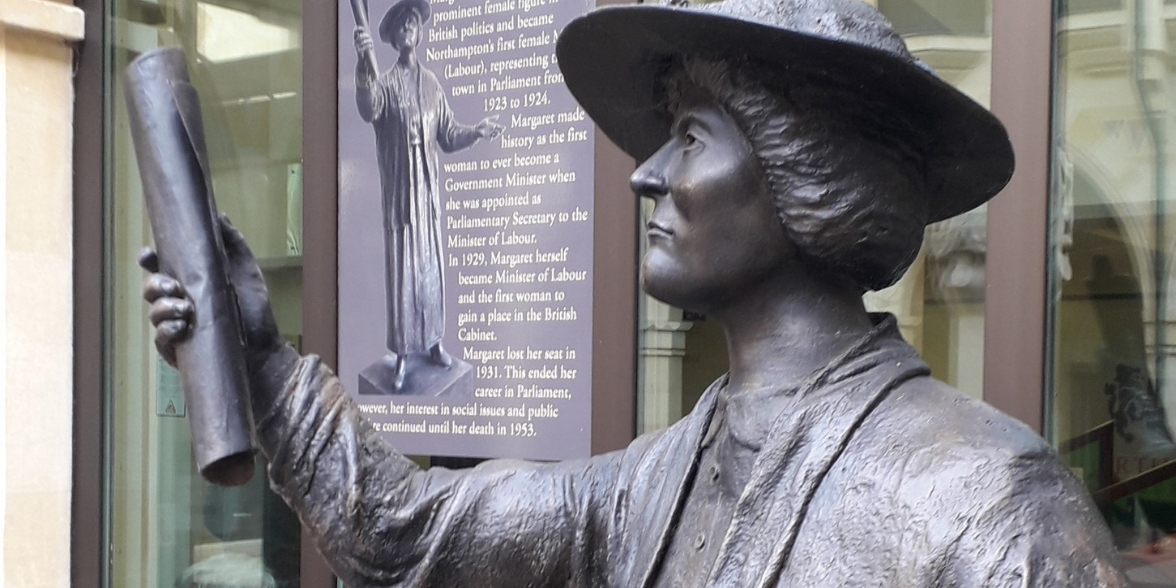BLOG: Remembering Northampton’s most celebrated female politician
Date 8.03.2019
8.03.2019
Friday 8 March is International Women’s Day and it is therefore a fitting occasion to remember one of Northampton’s – and Britain’s – most celebrated female politicians.
Last year was the centenary of women getting the vote in Britain and this was marked by commemorative events throughout the country. This year is the centenary of the first woman taking a seat in the House of Commons, as Nancy Astor was elected as a Conservative MP in November 1919. (Constance Markievicz had been elected the previous year but did not take up her seat as she was an Irish republican.)
Margaret Bondfield (1873-1953) was among this pioneering group of female MPs. She was elected as a Labour representative for Northampton in December 1923, at her third attempt to get elected for the town. She was one of the first three female Labour MPs who took their seat at that election, and went on to become the first female cabinet minister and privy counsellor. Bondfield was not deterred by the tough masculine cultures of the hustings and parliament. As her friend George Bernard Shaw noted, ‘you are the best man among them’.
Prior to becoming elected, she had already had a prominent career in public life through her work in the union movement. Bondfield came from a humble background and started work as a shop assistant. Horrified at the working conditions of shop staff, she got involved in the shop workers’ union. She was elected to the TUC in 1918 and subsequently became its chair.
Bondfield had also been involved in movements for women’s rights and welfare, including the Women’s Labour League and the Adult Suffrage Society. She believed that all adults should get the vote, irrespective of gender or class, and this led to disagreements with other suffragists whose proposals were less far-reaching.
Her career was a remarkable one, marked by many ‘firsts’. She herself was modest about this: ‘Some woman was bound to be first. That I should be was the accident of dates and events.’ Although her role in the controversial National Government of 1931 damaged her reputation in the Labour Party and the union movement, her importance has never been in doubt.
There are various memorials to Margaret Bondfield around the country, not least in Northampton, the town where she was first elected. The University of Northampton has named a hall of residence after her at the new Waterside Campus, and there is a road bearing her name in Kingsthorpe, near the former Park Campus. And last year on International Women’s Day, a statue was unveiled at Northampton Guildhall, placing Bondfield alongside Northampton’s most celebrated historical figures.
Matthew McCormack is Professor of History at the University of Northampton. His next book, Citizenship and Gender in Britain, 1688-1928, will be published later this year.